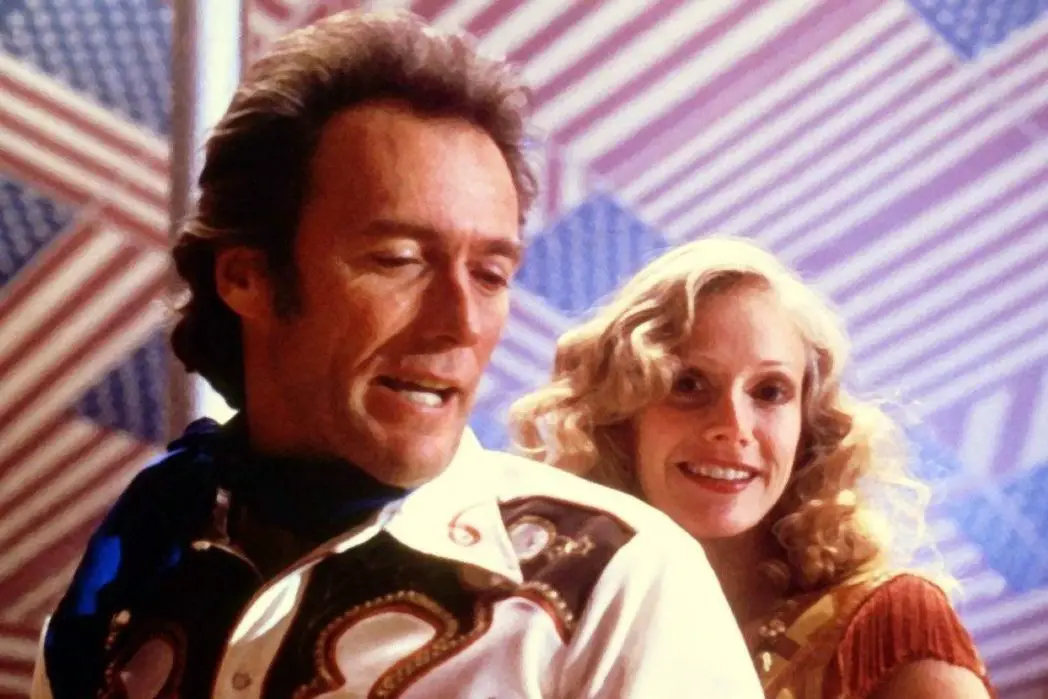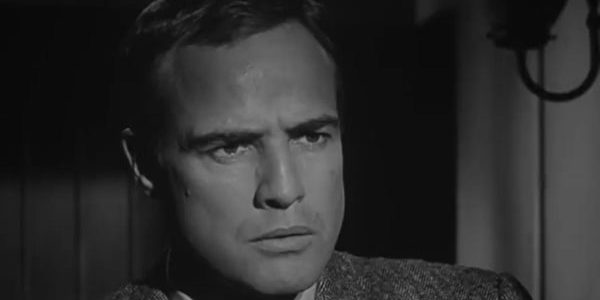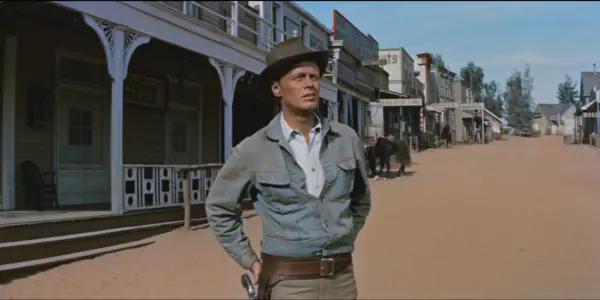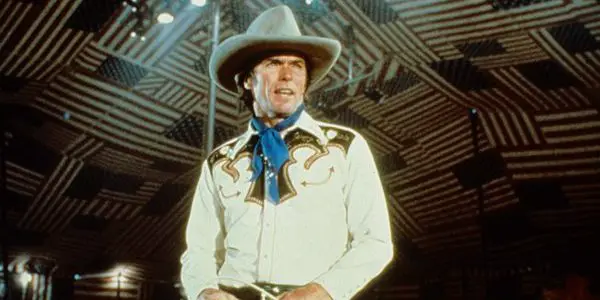Video Dispatches: MORITURI, WARLOCK & BRONCO BILLY

Midwesterner, movie lover, cinnamon enthusiast.
Video Dispatches is a regular column covering recent home video releases.
Morituri (1965) – Twilight Time

There are two distinct draws to Bernhard Wicki’s 1965 Nazi-boat adventure drama: Marlon Brando and Conrad Hall, whom I didn’t know shot the film until I saw his name in the opening credits. Brando, who, as Jeff Stafford pointed out, didn’t have a hit between 1954 and 1972 and for whom acting “became an increasingly commercial proposition” to support his three households and two alimonies. Morituri is certainly not the stock of a hit, but Brando does some good work here, alternating between a German and British accent as he’s undercover as a Nazi. The film’s standout scene is an interrogation of Brando’s Robert Crain by Nazi leaders skeptical of his identity. It’s a fairly tense moment that allows Brando to do some subtle theatrical acrobatics.
Hall provides plenty to admire in this otherwise paint-by-numbers drama, most notably a handful of elaborate and admirable crane shots, including the closing shot. Elsewhere, the legendary cinematographer shoots the ship’s bowels with enough thoughtfulness, but I don’t want to overstate it — this isn’t one of Hall’s best works, he’s just always good.
Julie Kirgo, Twilight Time’s house essayist, was much more impressed by Morituri, “This is exceptional filmmaking. If we were in just the right cynical mood, we might almost have to say that Morituri’s low-key intelligence is what did it in. It is something more than an action film — although its action sequences are blessed with both clarity and excitement; it is also a kind of morality play.”
Warlock (1959) – Twilight Time

My taste aligns much closer with Kirgo on Warlock, Edward Dmytryk’s western, starring Henry Fonda, Anthony Quinn and Richard Widmark. Dmytryk, who’s better known for his noir films of the previous decade (Murder, My Sweet, Crossfire) or for naming names after being blacklisted, adapts Oakley Hall’s novel into an earnest western that complicates ideas of what is right and who is honorable.
Kirgo refers to the film as a “myth-buster,” which is perhaps just short of calling it a revisionist western, which, though revisionist westerns had yet to be established at this time, is essentially what Warlock is. The film, about a town vulnerable to nearby outlaws outsourcing protection in Fonda’s Clay Blaisedell and his limping cohort Tom Morgan (Quinn), is full of characters Kirgo calls “ambiguous” — this isn’t quite the anti-hero that is The Man With No Name, but Clay’s opaque morality is certainly a certainly a stepping stone for Sergio Leone’s use of him in Once Upon a Time in the West.
Warlock is lensed by Joseph MacDonald, who also shot My Darling Clementine as well as multiple films for Samuel Fuller and Elia Kazan. The film looks wonderful, but what struck me most is the small handful of night scenes that MacDonald lights with a melancholic moonlight — a melancholy that befits Warlock’s attitude towards the genre’s violent but inescapable conventions.
Looking for other writing on Warlock, I didn’t shore up much aside from this well written and impassioned blog post from 2013, which begins by positing the film’s need for reappraisal. Six years on, with Twilight Time’s lovely transfer, perhaps a few others, like myself, will find their way to Dmytryk’s film.
Bronco Billy (1980) – Warner Archive

The title of Clint Eastwood’s Bronco Billy is a sly bit of duplicity. From the outside, it infers Eastwood’s titular character, the headliner of his own traveling circus show, but Bronco Billy is also doubles as the name of the show, Billy and the entire cast, a shaggy-dog family swimming against the stream of relevance.
The B-plot of Eastwood’s film is a bit jarring — an heiress, Antoinette (Sondra Locke), gets married to a near-stranger to inherit her fortune before he leaves her, only to be convicted of murder once Antoinette goes “missing.” Of course, she doesn’t go missing, but is convinced to join Bronco Billy’s show despite seeming to be a conductor of bad luck wherever she goes.
Once these plots converge, Bronco Billy becomes about the importance of being accepted — ironically, Eastwood wasn’t embraced here at the box office — and all sorts of things that, while trite to type out, the filmmaker treats with a gentle and affable conviction that lifts them from pure sentiment. More specifically, Bronco Billy becomes a film about the warmth and possibility of surrogate families — a theme that has gone on to tower over the filmmaker’s oeuvre in films like A Perfect World, Million Dollar Baby and last year’s 15:17 to Paris.
Warner Archive’s disc doesn’t have any extra features, but the HD transfer looks striking. I should also note, as an aside, the opening song from Ronnie Milsap, “Cowboys and Clowns,” is an immediately fetching song I hadn’t previously heard.
Does content like this matter to you?
Become a Member and support film journalism. Unlock access to all of Film Inquiry`s great articles. Join a community of like-minded readers who are passionate about cinema - get access to our private members Network, give back to independent filmmakers, and more.













